One Person Company
One Person Company
- Application for DSC (Digital Signature Certificate).
- Apply for the DIN (Director Identification Number)
- Application for the name availability.
- Filing of the EMOA and EAOA to register One Person Company
- Apply for the PAN and TAN of the company
- GST Registration
- Application for Digital Signature Certificate.
- Apply for the DIN
- Application for the name availability.
- Filing of the EMOA and EAOA to register One Person Company
- Apply for the PAN and TAN of the company
- GST Registration
One Person Company Registration - An Overview
A One Person Company Registration is a forward-thinking notion for those who either have entrepreneurial dreams or those who want to incorporate micro-businesses but has no resources, time, or means to attract more partners for executing the business plan. Further, the concept of OPC Registration can be considered as an amalgam structure of the regular Private Limited Company and Sole proprietorship. Hence, the concept of OPC company enjoys the best of two worlds.
Documents Required
Director's Document
- PAN Card or Passport (Foreign Nationals & NRIs)
- Voter’s ID/ Passport/Driver’s License
- Latest Bank Statement / Telephone Bill / Electricity or Gas Bill
- Passport-sized photograph and specimen signature
Registered Office Document
- Latest Bank Statement / Telephone Bill / Electricity or Gas Bill
- Notarized lease agreement in English
- No-Objection Certificate from the property owner
- Sale Deed/ property deed in English (if owned property)
PROCESS
- Application for DSC (Digital Signature Certificate).
- Apply for the DIN (Director Identification Number)
- Application for the Name Availability.
- Filing of the EMOA and EAOA to register One Person Company
- Apply for the PAN and TAN of the company
- Issued certificate of incorporation by RoC with PAN and TAN
POST REGISTRATION
- Open Bank Account within 30 Days
- Deposit Share Capital money within 30 days
- File commencement certificate within 180 days
- Issue Share certificates – within 60 days
- Appoint Auditor within 30 days
- GST Registration for Company
Benefits of One Person Company Registration

For obtaining One Person Company Registration, there is no minimum amount prescribed for the capital required. However, the maximum authorised capital in case of a One Person Company shall not anyhow exceed the threshold limit of Rs. 50 lakhs at any point in time.
Another significant benefit annexed with the concept of registration of One Person Company is of limited liability. This means that the liability of the concerned director is limited to the extent of capital contributed by him or her in the business. Hence, the personal asset and belongings of the Director will not be attached in case of any loss incurred by the business.
The compliances that are to be adhered to for an OPC registration are very less in comparison to any other company. Hence, the registration of an OPC can be done easily that, too, with minimum paperwork.
The term perpetual succession means that the death or illness or the incapacity of the director will not affect the ongoing affairs of the company as the nominee will hold the position of member and director in the business in that case.
A One Person Company is obligated to get its books of account audited annually. This will, in return, increase the business credibility and consumer, vendor satisfaction.
It is significant to note that whenever a company registers itself as a One Person Company, it ends the chances of any future legal disputes between the director or any third party.
An OPC can avail all the benefits that are offered to the small-scale industries. These benefits include easy funding that, too, without depositing collateral security to certain prescribed limits, lower interest rates loans, privileges under the foreign trade policy, etc. Therefore, these benefits play a significant role in the progress and development of the One Person Company in its initial days of incorporation.
A private limited company opens up better opportunities for growth and expansion. It can raise funds and pay high salaries to attract experts and professionals for the growth and expansion of the company.
Why BizOkay India?


Frequently Asked Questions
As per Section 2 (62) of the Companies Act, 2013, a company that needs just one person as its member is known as One Person Company. Further, the member or shareholder of this business structure is also the subscriber to its MOA (Memorandum of Association).
Yes, as per Section 2 (62) of the Companies Act, 2013, a single person can start a One Person Company as it requires just one director and shareholder. Further, an OPC involves fewer compliance requirements in comparison to a Private Limited Company.
The key difference between a Sole Proprietorship and One Person Company is that the former does not require compulsory registration. However, the latter needs to mandatorily obtain OPC registration under the provisions of the Companies Act, 2013. Further, a sole proprietorship does not enjoy a separate legal entity’s status, and thereby the sole proprietor suffers unlimited liability. In contrast, an OPC enjoys the status of a separate legal entity, i.e. its member enjoys the feature for limited liability.
Only Natural Persons who are Indian Residents and Citizens are eligible to incorporate a One Person Company in India. The same precondition applies to nominees of OPCs. Furthermore, the natural person cannot be a nominee or member of more than one OPC at any point in time.
The key requirements for converting a Private Company into a One Person Company are that the company must have a total paid-up capital of up to Rs 50 Lakhs or an Average Annual Turnover of Rs 2 crores for the last three consecutive years.
Yes, an OPC can raise funds through angel investors, venture capital, financial institutions, etc.
No, a foreigner is not eligible to become a nominee in an OPC. The director of an OPC needs to mention the name of the person nominated as the nominee in Form INC-2. Further, the consent of such a nominee is required to be filed in Form INC-3.
In India, BizOkay India is one of the most chosen legal service providers. We have an in-house expert team of professionals including CA, CS, and Lawyers. We not only guarantee on-time delivery but also customised services at the most reasonable rates in India.
In India, the process of OPC Registration generally includes a period of 7 business days.
No, FDI is not allowed for an OPC in India.
In case of a change in the membership, the director of an OPC needs to file Form INC- 4 with the Registrar of Companies (ROC). This form must also contain the details of the new member.
